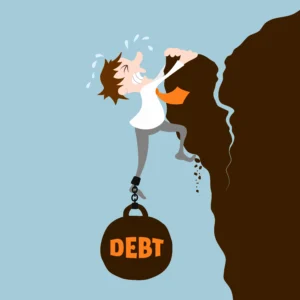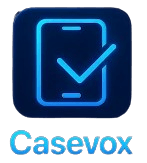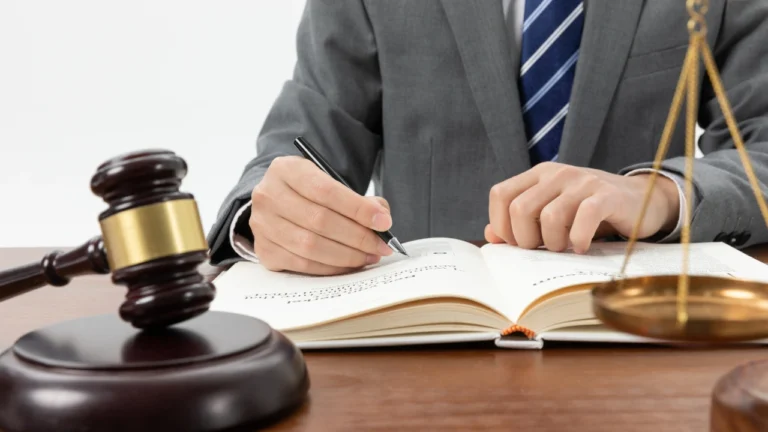🚨Understanding United Tranzactions Phone Harassment
Dealing with collectors can be stressful, especially when they engage in illegal activities or harass you to recover the debt. However, you don’t have to suffer through How to address United Tranzactions phone harassment alone. Understanding your rights under the Fair Debt Collection Practices Act (FDCPA) is critical to protecting yourself from unfair practices, and that’s where Consumer Rights Law Firm can help.
Ensuring your personal security is also crucial when dealing with billing and collections specialist, as it helps protect your data and confidentiality.
The FDCPA ensures that consumers like you have protection against debt collectors who might otherwise overstep boundaries, and United Tranzactions has often pushed those boundaries. If you’re facing threats, abuse, or constant calls, it’s crucial to understand what’s illegal and how you can protect yourself.
United Tranzactions Phone Number
Public phone number for United TranzActions: 1-800-858-5256
💡Debt Collection and Its Purpose
Debt collection is the process of pursuing payments of debts owed by individuals or businesses. Debt collectors, also known as collection agencies, work on behalf of creditors to recover debts that are past due or in default. The primary purpose of debt collection is to recover the amount owed to the creditor while ensuring that the debtor’s rights are protected under the Fair Debt Collection Practices Act (FDCPA). This federal law sets the standards for fair debt collection practices, ensuring that debt collectors do not engage in abusive, deceptive, or unfair practices when attempting to collect debts.
🔍Types of Debt Collectors
There are several types of debt collectors, each with a specific role in the debt recovery process:
- First-party debt collectors: These are creditors who collect debts on their own behalf, such as banks and credit card companies. They typically handle the initial stages of debt collection.
- Third-party debt collectors: These are collection agencies that work on behalf of creditors to collect debts. United Tranzactions LLC is an example of a third-party debt collector that creditors hire to manage delinquent accounts.
- Debt buyers: These are companies that purchase debts from creditors at a discounted rate and then attempt to collect the full amount owed. Debt buyers take on the risk of collecting the debt in exchange for the potential profit.
Understanding the different types of debt collectors can help you navigate the debt collection process more effectively and know who you are dealing with.
📢What to Expect from United Tranzactions Debt Collection Process
When you fall behind on a loan or miss payments on your credit card, the creditor may take action to recover the debt. United Tranzactions collectors may come in here. United Tranzactions is a third-party debt collection agency that creditors often hire to handle delinquent accounts and manage account-related inquiries.
Initially, your creditor may try to collect the debt for up to six months (180 days). However, if the debt remains unpaid, creditors often sell it to agencies like United Tranzactions. Once you pay the debt, the collector becomes responsible for recovering the payment. Actions taken by a financial institution, such as adjustments to checks without prior notice, can also impact the debt collection process. From this point forward, they will begin reaching out to you—often aggressively.
You might receive frequent calls from UT’s phone numbers, sometimes multiple times a day. While this can feel overwhelming, understanding your legal rights can give you the confidence to fight back.

🔍United Tranzactions Phone Harassment Under Fair Debt Collection Practices?
Debt collectors are allowed to contact you, but they are not allowed to harass you. Harassment can take many forms, and United Tranzactions phone harassment is one of the most common complaints we hear at Consumer Rights Law Firm PLLC. It could include persistent calls, aggressive language, threats, or even contacting your friends and family about your debt.
The FDCPA outlines clear guidelines on how collectors can behave. If a debt collector breaks these rules, you have the right to take action. At Consumer Rights Law Firm PLLC. many clients successfully fight against United Tranzactions threats and recover damages for their suffering. Addressing inaccurate information on credit reports is also crucial, as such errors can lead to higher interest rates or denial of credit. Properly identifying and disputing these errors is essential to rectify any inaccuracies.
The FDCPA prohibits debt enforcement agents from doing any of the following:
- Attempting to collect more than what you owe.
- Depositing a post-dated check before the agreed date.
- Threatening violence or other unlawful actions.
- Impersonating a lawyer or government official.
- Calling you at unreasonable hours (before 8 a.m. or after 9 p.m.).
- Revealing your debt to others, like your family or employer.
If you believe you are facing United Tranzactions phone harassment, it’s important to start keeping a record. Write down the date, time, and content of each call, and make note of the phone number they used. Save any letters or emails they send you. These records could prove invaluable if you decide to file a lawsuit.
🛡Recognizing United Tranzactions Phone Harassment
Recognizing United Tranzactions phone harassment from Recovery agents can be challenging, but it’s essential to identify the signs and document the incidents. Here are some common forms of harassment:
- Persistent calls or messages
- Threats of legal action or wage garnishment
- Abusive or profane language
- Contacting your employer or coworkers about your debt
- Making false statements about the debt or the debt collection process
- Issuing checks with insufficient funds, which falls under certain exclusions in bad check enforcement programs
To document United Tranzactions phone harassment, you should:
- Keep a record of all calls, messages, and letters from the debt collector
- Save any voicemails or emails from the recovery agent
- Take notes on the date, time, and content of each call or message
- Record any conversations with the debt collector (with their consent)
- Keep a copy of any letters or documents sent by the recovery agent
Having a clear record of United Tranzactions phone harassment can help you build a case against the debt collector and seek legal action. If you’re experiencing calls from a collection agency, don’t hesitate to seek legal advice and protect your consumer rights.

📝Steps to Take Against United Tranzactions Phone Harassment
If you’re experiencing United Tranzactions phone harassment or any other form of debt collection harassment, don’t panic. Monitoring your checking account for unauthorized deductions is crucial, as the Electronic Fund Transfer Act (EFTA) protects consumers from improper electronic payments and provides legal rights if their accounts are mismanaged by debt collection agencies. Here are some steps you can take:
1. Validate the Debt
Before paying any debt, ensure the collector is legitimate. United Tranzactions should provide written validation of the debt, including the amount owed and the original creditor’s name. They must send this validation within five days of their initial contact with you. If they fail to provide this, you may be dealing with a scam.
2. Request Them to Stop Contacting You
You have the right to stop Collection representative from calling you. To do this, send a written cease-and-desist letter to United Tranzactions. Once they receive your letter, they can only inform you of further legal action or confirm they’ve stopped contacting you. Be sure to keep a copy of the letter and proof that you sent it.
3. File a Complaint
If the collection agency continue to harass you or fail to follow the law, file a complaint with the (CFPB), the Federal Trade Commission (FTC), or your state’s attorney general. These organizations are equipped to handle consumer complaints and will investigate the situation.
4. Get Legal Assistance
One of the most effective ways to stop United Tranzactions phone harassment is to get legal help. CRLF PLLC. specializes in fighting against United Tranzactions lawsuits and can help you recover statutory damages. Under the FDCPA, you could receive up to $1,000 in damages and legal fees reimbursement.
📞How to Find a Debt Collector’s Address and Phone Numbers
Finding a debt collector’s address and phone numbers can be done through several methods:
- Checking their website: Most debt collectors have a website that lists their contact information, including their address and phone numbers.
- Checking your correspondence: Debt collectors are required to include their contact information on the correspondence they send to debtors, such as letters and emails.
- Contacting the Better Business Bureau (BBB): The BBB can provide you with information on a debt collector’s contact information and any complaints that have been filed against them.
- Contacting your state’s Attorney General’s office: Your state’s Attorney General’s office can provide you with information on a debt collector’s contact information and any complaints that have been filed against them.
By using these methods, you can ensure that you have accurate and up-to-date contact information for the debt collector, which can help you manage your debt more effectively and protect your rights.

⚖️Can You Sue United Tranzactions?
Yes! You can take legal action if they have violated your rights. Winning a lawsuit against the collection firm could mean a significant financial reward for you—up to $1,000 in statutory damages, plus reimbursement for your legal fees. It is important to understand both federal and state laws when taking legal action against debt collectors.
To increase your chances of success, make sure you have:
- Records of all communications from United Tranzactions.
- Copies of any letters or documents you’ve sent them, including a cease-and-desist letter.
- Detailed notes of any phone calls, including the date, time, and what you had to discuss.
With this documentation, Consumer Rights Law Firm PLLC. can help you build a solid case against United Tranzactions and get the justice you deserve.
⚠️Is United Tranzactions Legitimate?
United Tranzactions is a legitimate debt collection agency based in Miramar, Florida. It has been in business for over two decades and is known for working with large companies to recover debts. However, just because it’s an honest company doesn’t mean it always follows the law.
Consumers have filed complaints with the Better Business Bureau (BBB) and various consumer protection agencies. Sometimes, consumers accuse them of using aggressive and illegal tactics, including United Tranzactions phone harassment and threats. A consumer filed a class action law against them for these very issues.
If you’re unsure whether a Collection representative is legitimate, be sure to do your research. Look up reviews, contact the original creditor.
🔒Protect Yourself from Debt Collection Scams
Unfortunately, many scammers pose as recovery agents to steal your money. These scams can be challenging to spot, but there are some red flags to watch out for:
- The collector refuses to validate the debt.
- The collector threatens you with jail time or other illegal actions.
- The collector asks you to pay via unusual methods, like gift cards or wire transfers.
If any of these happen, you might be dealing with a scam. Scammers will often use fear tactics to pressure you into making a payment immediately. However, legitimate Collection representatives must follow the law and cannot threaten or harass you.
🛑United Tranzactions Reviews: What Are Consumers Saying?
When searching for United Tranzactions reviews, you’ll find mixed feedback from consumers. Some people report that the company is a legitimate debt collection agency handling payment processing and collections, while others share complaints about harassing phone calls, aggressive tactics, and confusing billing practices. Negative reviews often mention repeated calls, unclear debt validation, or threats of legal action.
If you’re dealing with United Tranzactions, it’s important to separate genuine reviews from possible scam reports. Always verify the United Tranzactions phone number or contact information directly with the company before responding to calls. Checking reviews can help you understand how others have handled their interactions and prepare yourself with the right steps under the Fair Debt Collection Practices Act (FDCPA).
📵What to Do if United Tranzactions Threatens Legal Action
United Tranzactions collectors may threaten to take you to court if you don’t pay your debt. While debt collectors do have the right to sue you, many of their threats are empty and meant to scare you into paying. If the agency threatens legal action, here’s what you should do:
- Stay calm. Collectors often use threats to pressure you, but that doesn’t mean they will follow through.
- Ask for proof of the debt. Under the FDCPA, they must provide written evidence of the debt and allow you to dispute it.
- Contact a lawyer. If Collection representative sue you, The Consumer Rights Law Firm can help you defend yourself and fight back against unfair practices.
- Discover effective strategies for handling debt collectors today.
📲Understanding Time-Barred Debt
One important thing to know about debt collection is that some debts are “time-barred,” meaning they are too old for them to sue you. The statute of limitations for debt collection varies by state, but it’s usually between three and six years. If they try to collect a time-barred debt, they cannot take legal action against you.
However, they can still ask you to pay the debt. Be cautious—paying on a time-barred debt could restart the statute of limitations, giving them the legal right to sue you.
🏛️Final Thoughts
Dealing with collection complaints and United Tranzactions phone harassment can be overwhelming, but you don’t have to face it alone. Understanding your rights and taking the proper steps can help you stop the harassment and hold Collection representative accountable. If you’re experiencing phone harassment, Consumer Rights Law Firm is here to help you take action and get the justice you deserve.
Consumer Rights Law Firm
Don’t let agencies intimidate you into making uncomfortable decisions. Whether dealing with illegal collection practices, remember that you have the law on your side. Consumer Rights Law Firm PLLC specializes in protecting consumers from unfair debt collection practices and can guide you every step of the way. We have an A+ rating with the Better Business Bureau. By taking action today, you can end harassment and potentially recover compensation for your trouble.
If you’re ready to fight debt collection harassment, contact Consumer Rights Law Firm to schedule a free consultation. You deserve peace of mind; we’re here to help you get it.
Success Stories
- I can’t believe how friendly and fast Matt acted on my behalf. The collection calls stopped quickly and my debit for that card is GONE. The firm got the card company to forgive my balance and even pay their fees. I didn’t have to pay anything. The best call I could have made. Thank you.
- Amazing service! They got rid of a debt i had and didn’t had to pay nothing out of pocket! I’m so thankful!
- I contacted them regarding a credit card scam and Scott was very knowledgeable and put my mind at ease. I highly recommend them.
FAQs
Who is United TranzActions and why are they contacting me?
United TranzActions is a payment check-guarantee and processing and company that may contact you if a transaction you made was returned or declined.
Is United TranzActions a scam or legitimate company?
They are a legitimate business accredited by the BBB since 2012. However, if you receive unexpected calls, always verify the debt they claim and request written documentation.
Can United TranzActions legally harass me with repeated calls?
No. Under the FDCPA, debt collectors (including UTA) cannot use harassment, threats, or excessive calls. Repeated daily calls or hostility may violate your rights.
Are United TranzActions using robocalls or spoofed numbers?
Many complaints report UTA uses robocalls or calls from unfamiliar numbers. Automated calls without your consent may violate the TCPA.
Can United TranzActions affect my credit score?
Yes, they may report delinquent or returned payments to credit bureaus, which can negatively impact your credit score if not addressed.
What should I do if United TranzActions keeps calling me?
Document each call (date, time, content), request written verification, and send a cease-and-desist letter. If calls don’t stop, file a complaint with the CFPB, FCC, or state AG.
Can I sue United TranzActions for harassment or illegal robocalls?
Yes, you may sue under the FDCPA for harassment and under the TCPA for unauthorized robocalls—potentially recovering statutory damages.
Where can I file a complaint against United TranzActions?
You can file with the Federal Trade Commission (FTC), (CFPB), FCC, or your state attorney general for violations of FDCPA or robocall laws.
How can I stop United TranzActions from contacting me?
Send a written request that they cease contact. If they continue, report them and consider hiring a consumer rights attorney to enforce your rights.







